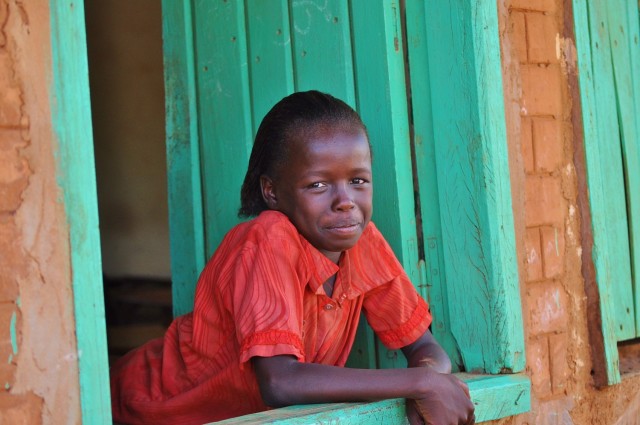[vc_row][vc_column width=”1/1″][vc_column_text]
Lack of access to clean water and sanitation affects women and girls most acutely. The burden of fetching drinking water from outdoor sources falls disproportionately on women and girls. Every day, young girls travel on foot for miles to collect water—reducing the time girls have available for school attendance.
Community Health Workers (CHWs) at Khorobody primary school in South Sudan, tasked with teaching the school community about the importance of using clean water for drinking and hand-washing, encountered a major barrier to behavior uptake: The school lacked access to water.
By making contributions through Khorobody primary school’s parent-teacher association, the group was able to purchase a donkey and a cart. Now, someone is able to collect enough water for children and teachers and bring it back to the school more easily.
With the increased availability of water, the team noticed improvements in healthy behaviors in the community and school, visible from the way the students kept themselves clean.
“We are grateful for the work that the [CHWs] have done in this school,” said the Head Teacher of Khorobody primary school. “Indeed the training…has provided everlasting behavior changes in the health patterns of the people in the schools and community.”
Today, on World Health Day, we are reminded of the urgent need for provision of safe water, sanitation and hygiene to vulnerable populations worldwide. This year’s World Health Day slogan – “Small bite, big threat” – is a reminder of the serious and increasing threat posed by vector-borne diseases as a direct result of the water and sanitation crisis.
One sixth of the illness and disability suffered globally is due to vector-borne diseases. And each year, more than one billion people are infected with diseases carried by mosquitoes, flies, ticks, water snails and other vectors.
Vector-borne diseases have a disproportionate impact on some of the world’s poorest populations – especially those without access to safe drinking water and sanitation. Stagnant water and inadequate sanitation facilities often combine to create favorable habitats for the proliferation of vectors. Moreover, people living with HIV/AIDS (PLHIV) are particularly vulnerable to opportunistic infections spread as a result of inadequate access to safe water and sanitation.
Two and a half billion people lack access to adequate sanitation facilities, while another 780 million lack access to clean water, according to the World Health Organizational and UNICEF. Thus improvements in water, sanitation and hygiene (WASH) practices and infrastructure are essential for decreasing the burden of vector-borne diseases.
For this reason, Creative has worked to integrate WASH into its programming; many of Creative’s education strengthening programs include WASH education for teachers and students.
Each year, 443 million school days are lost due to water and sanitation-related diseases, including many vector-borne diseases. Creative’s school WASH interventions decrease the burden of WASH-related diseases and increase school attendance.
The CHWs in South Sudan had been initially trained under the auspices of Creative Associates International’s Health, Education and Reconciliation (HEAR) project, funded by USAID. The seven-year initiative aimed to promote quality education and health services and improve school governance through enhanced local capacity and community engagement. HEAR trained 618 CHWs to disseminate health information and promote hygiene and sanitation in schools and neighborhoods.
Additionally, the Zambia Communities Supporting Health, HIV/AIDS, Nutrition, Gender and Equity Education in Schools program formed School Health Nutrition committees to work together with schools to solve health problems. These committees were instrumental in developing proposals for small grants to purchase latrines and support other WASH-related interventions.
Creative’s stabilization and sustainable livelihoods programs also assist communities in accessing WASH services.
For example, the Yemen Community Livelihoods Project linked five health facilities providing quality services to 781,816 beneficiaries to water systems, encouraging improved sanitation practices and promoted the use of safe drinking water.
Today, World Health Day 2014, the World Health Organization is calling for a renewed focus on vector control and better provision of safe water, sanitation and hygiene. Creative – in its commitment to supporting health and safety – will continue to implement vital, integrated programming to increase the provision of safe water, sanitation and hygiene to vulnerable populations worldwide.
Morgan Simon is a consultant with Creative, focusing on its HIV and health services. [/vc_column_text][/vc_column][/vc_row]